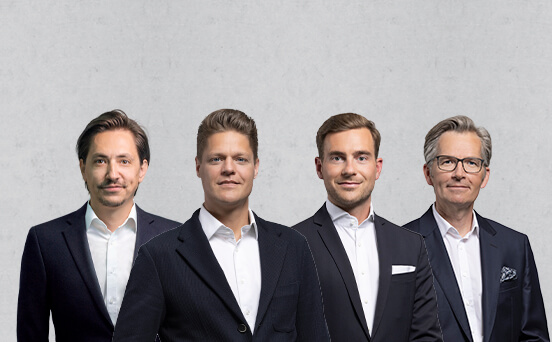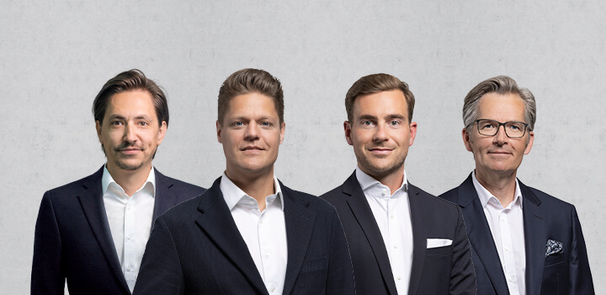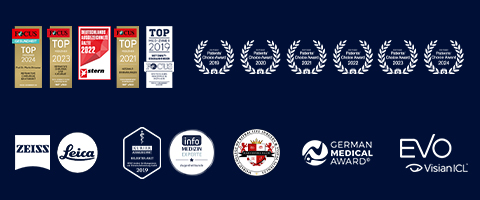Incredible! First approved gene therapy for the eye performed by Prof. Dr. Siegfried Priglinger and his team!
What was once considered impossible is now a new therapy: Prof. Priglinger performed the first gene therapy for a patient with an inherited retinal disease as an eye surgeon in the German-speaking region. With this, the University of Munich Eye Clinic assumes a pioneering role in curing previously untreatable eye diseases.
A milestone set by this new therapy
This innovative treatment will initially be used for hereditary retinal diseases. The pioneering procedure was carried out by Prof. Dr. Siegfried Priglinger, Director of the Eye Clinic, and his team.
Retinal degeneration means vision loss up to blindness
There are over 250 known genes that can affect the retina in such a way. In the treated patient’s case, a condition called Leber’s congenital amaurosis was diagnosed. This retinal disease causes progressive concentric narrowing of the visual field and can eventually lead to vision loss and blindness.
Cause of the severe retinal disease
“The so-called RPE65 gene is responsible for producing an enzyme essential for the visual cycle (retinoid isomerohydrolase). This enzyme produces light-sensitive visual pigments and is indispensable for vision. If this enzyme’s function is impaired or absent, a light stimulus cannot be fully converted into a visual perception. This leads to a gradual loss of vision over time,” explains Prof. Dr. Priglinger.
The principle: introducing a healthy gene copy
The eye specialist further explains the treatment process: “To surgically administer the new gene therapy drug Voretigene Neparvovec (‘Luxturna’), the vitreous body is removed. This gives us unobstructed access to the retina. Using an injection cannula only 0.1 mm in diameter, the gene therapy dissolved in a carrier material is carefully injected under the retina. Simply put, this delivers a healthy copy of the defective RPE65 gene to the target cells of the retina. Once there, these cells can produce a functioning protein and restore the physiological visual cycle.”
The future of ophthalmology
“Luxturna is just the beginning and marks the start of a new era in ophthalmology. Finally, we can treat diseases that were previously untreatable. With the introduction of gene therapy into clinical routine, we will soon be able to offer a real treatment alternative for a growing number of hereditary eye diseases,” says Director Prof. Priglinger, who also operates eye clinics in Linz and Vienna.
Patients gain a whole new perspective
“For young people with such a severe rare retinal disease and their families, the use of the healthy gene copy ‘Luxturna’ is a huge milestone. This treatment gives us all hope and opens the possibility of improved vision for the first time,” explains Franz Badura, affected patient and chairman of PRO RETINA Germany, the oldest and most renowned patient organization for people with retinal degenerations.
Saving eyesight
Nikša is only six years old. His parents noticed early that he had difficulties with his vision. He did not follow objects, made little eye contact, and later had trouble finding toys. Nikša was diagnosed with Leber’s congenital amaurosis (LCA). This genetic disease affects about 1 in 50,000 people and is one of the most common causes of blindness and visual impairment in children.
The good news
In children, vision is still developing. Often some visual function remains, and this is exactly where the new therapy approach (Luxturna; see below) comes in. As long as enough functioning cells remain in the eye, it is possible to halt or, in the best case, reverse the degenerative process. The eyes learn to see again.
Luxturna
The drug Luxturna is a virus carrying a healthy copy of the affected gene (RPE65). It is injected into the retina, releasing the healthy gene there. The damaged cells then learn to produce the missing protein, improving retinal function.
Hope
Despite this enormous milestone for ophthalmology, Luxturna is still rarely used because it is currently the most expensive drug on the entire European market. Many countries and insurance providers, unlike Germany, do not reimburse the cost. Nevertheless, there is great hope. As treatment success and demand increase, the drug’s price is expected to decrease.
CONTACT
Ophthalmology Clinic Linz
Weissenwolffstraße 13, 3rd Floor
4020 Linz
Office Hours
Phone Consultation Hours
MON, WED, THU 09:00 AM – 6:00 PM
TUE 09:00 AM - 4:00 PM
FRI 09:00 AM – 12:00 PM
Appointment Days
By appointment only
Ophthalmology Clinic Vienna
Habsburgergasse 10, 4th Floor
1010 Vienna







